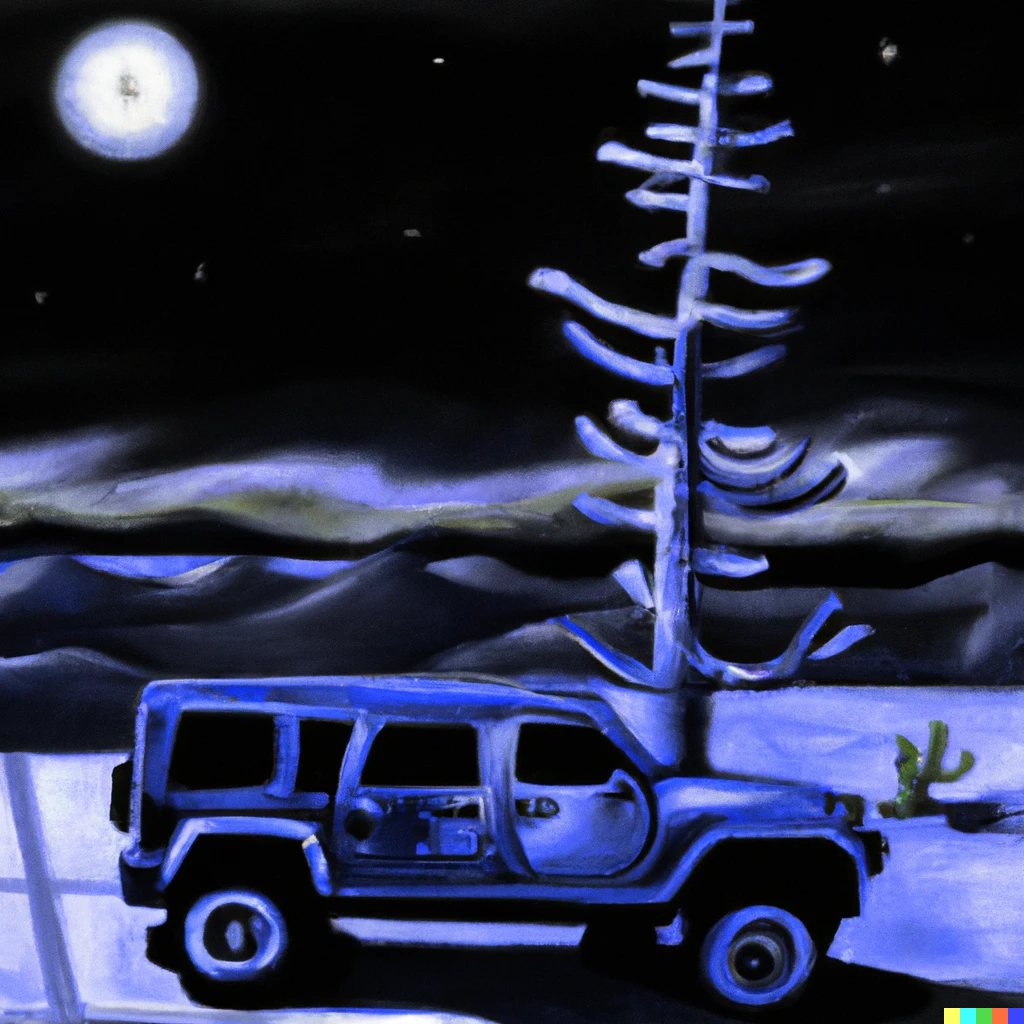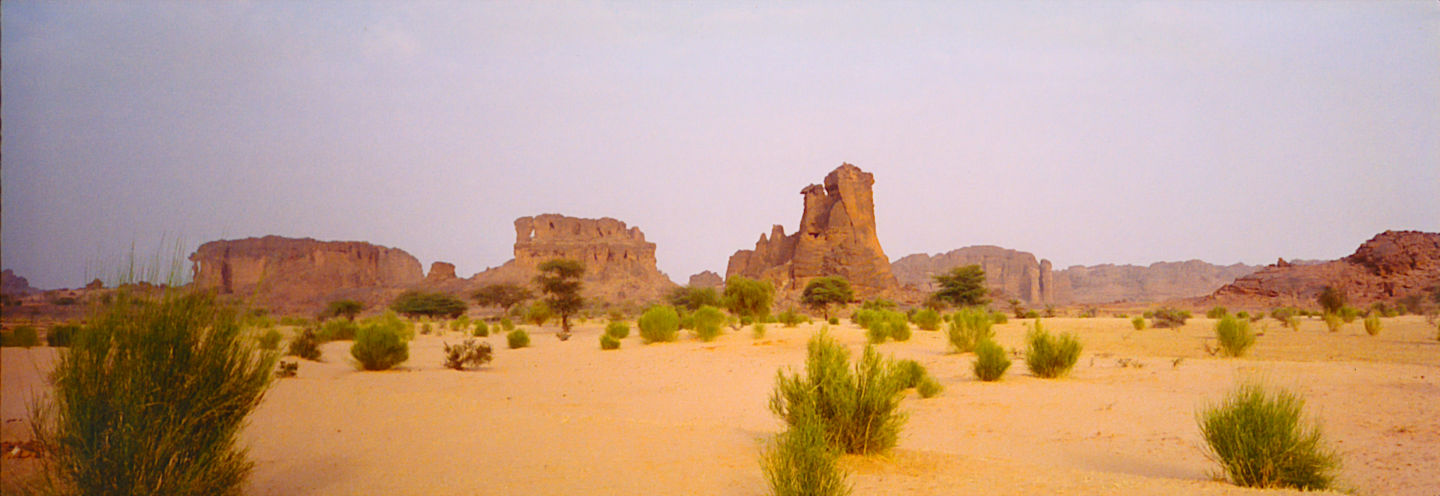In December 2001 I managed to get three days off from teaching to travel to Kiffa and then to Kankossa to spend Christmas with friends, far from Tintane.
Kiffa was a pretty large town, maybe the third largest in the country. There were restaurants and cyber cafés and cabines téléphoniques. After calling home and checking email and eating restaurant meals of yassa poulet and thieboudienne, it was time to quit Kiffa for Kankossa, about 90k south. The route was mostly unpaved, as I remember: not really a dirt track so much as a collection of tire tracks meandering through loose sand. The exact route was left to the driver’s discretion.

The sun set as we drove south. We stopped for evening prayers and to have some tea on the side of the route. Night fell as we got back in and the landscape took on a peaceful monochromatic glow. A long lingering twilight silhouetted gentle waves of dunes. We floated on tires deflated for travel in sand. The moon eventually rose and cast everything in soft, shallow relief, underexposed and underdeveloped. As I fell in and out of sleep, whether from tiredness or carbon monoxide I do not know, the rickety 4x4 I was in transformed into a sleigh and the sand to snow. The smell of woodsmoke from cooking fires gave me visions instead of chimneys and cold nights back home. I thought of storybook winter villages. I thought of Christmas.
My winter dreamstate dissolved when we stopped. Kankosso was dark. It had no electricity, and that was in fact part of what I was excited about. In Tintane, electricity helped me read at night but otherwise made life more frustrating. My host family—my food family really—had satellite TV and watched it constantly. Who can blame them? It was a luxury and neighbors would come over to watch, but for me it was a maddening waste of time. I couldn’t understand it and it engrossed my companions so completely that all conversation was stifled. Al Jazeera news, weird soap operas about the crusades, and me trying to ignore it all to focus on reading or my vocabulary flash cards.
In Kankossa, the quiet was welcome. By day there was lake Kankossa bordered abruptly by tall sand dunes. There were gardens and date groves along the water. The people were kind. By night, the sky was dark behind the Milky Way. We read by lantern light. The walls of the group house in Kankossa had graffiti from decades of Peace Corp volunteers who’d passed through before, leaving messages for their successors. It felt historical and magical.
The contrast with Tintane was stark. I’d been forming a theory about it: too big to be a village and too small to be a town, Tintane had the benefits of neither. Kankossa had the charm of a small village. I wrote about it after returning to Tintane:
December 29, 2001
I’ve just returned from an extended trip to Kiffa and Kankossa. It was good. I fell in love with Kankossa: small, quiet, pretty, nice people. What more is needed?
I had a lot of time to think about what had been bothering me and I think I’ve found some motivation to turn things around. Yes, I think Tintane is a hard site, with obstacles somehow that other sites may not have, but I will try to make the best of it. I’m sure I’ll write more on it later. Now, I’m off to the market to avoid being in my room.
The sense of optimism must have been my Christmas present that year. Like a child, I played with it for a day or two and then grew tired of it. A couple days later and I found myself exactly where I was before, venting to myself in my journals about the same old frustrations. But one realization did stick with me: I did have an especially hard site. It was a slow realization that crystallized the more I visited other volunteers throughout Mauritania. While the frustrations didn’t really lessen much until I left Tintane for Aioun, at least I was beginning to blame myself less for them.
And that truly was a gift.

